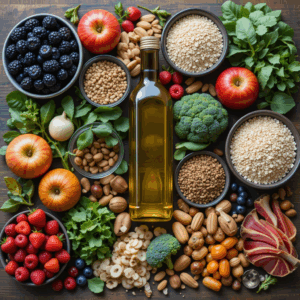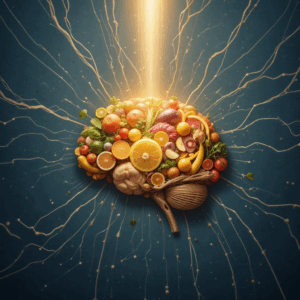Nutrition and Parkinson’s: Foods that Can Help
Living with Parkinson’s disease presents unique challenges, and while there’s no cure, emerging research highlights the significant role nutrition can play in managing symptoms and improving quality of life. Eating well can not only support overall health but also potentially ease some of the common non-motor symptoms associated with Parkinson’s.

The Importance of Diet
For individuals with Parkinson’s, a well-balanced diet isn’t just about general wellness; it’s about potentially mitigating issues like constipation, fatigue, and even mood changes. Certain foods can also interact with medications, so understanding these relationships is crucial.
Key Nutritional Strategies
Here are some key dietary approaches that may be beneficial:
1. The Mediterranean Diet
This diet, rich in fruits, vegetables, whole grains, nuts, and olive oil, has long been praised for its heart-healthy benefits. For Parkinson’s, its anti-inflammatory properties and high antioxidant content are particularly appealing.
2. High-Fiber Foods
Constipation is a common and often distressing symptom of Parkinson’s. Increasing fiber intake can significantly help:
- Fruits: Berries, apples, pears
- Vegetables: Broccoli, spinach, carrots
- Whole Grains: Oats, whole wheat bread, brown rice
- Legumes: Lentils, beans, chickpeas
3. Antioxidant-Rich Foods
Antioxidants help combat oxidative stress, which is believed to play a role in Parkinson’s progression. Focus on colorful fruits and vegetables:
- Berries: Blueberries, strawberries, raspberries
- Leafy Greens: Kale, spinach, collard greens
- Nuts & Seeds: Walnuts, almonds, flax seeds
- Dark Chocolate: (in moderation, choose high cocoa content)
4. Healthy Fats
Incorporating healthy fats can support brain health and provide sustained energy.
- Avocado
- Olive Oil
- Fatty Fish: Salmon, mackerel (rich in Omega-3s)
- Nuts and Seeds
5. Protein Distribution
While protein is essential, it can sometimes interfere with the absorption of levodopa, a common Parkinson’s medication. Many people find it helpful to distribute protein intake throughout the day or consume most of their protein in the evening. Always discuss this strategy with your doctor or a dietitian.
Foods to Consider Limiting
Just as some foods can help, others might exacerbate symptoms or interfere with medication:
- Highly Processed Foods: Often low in nutrients and high in unhealthy fats and sugars.
- Excessive Saturated and Trans Fats: Can contribute to inflammation.
- Alcohol: Can interfere with sleep, medication, and worsen balance issues.
- Sugary Drinks: Provide empty calories and can lead to energy crashes.
Meal Ideas for Parkinson’s Support

Here’s a quick look at how you might integrate these principles into daily meals:
Important Considerations

- Hydration is Key: Drink plenty of water throughout the day to aid digestion and overall well-being.
- Consult Professionals: Always work with your doctor or a registered dietitian specializing in Parkinson’s. They can help tailor a diet plan that considers your specific symptoms, medications, and individual needs.
- Small, Frequent Meals: Some people find eating smaller, more frequent meals throughout the day helps manage energy levels and medication absorption.
By making informed dietary choices, you can empower yourself to better manage Parkinson’s symptoms and enhance your overall health journey.
Reference:https://www.frontiersin.org/journals/nutrition/articles/10.3389/fnut.2025.1600955/full

Leave a Reply